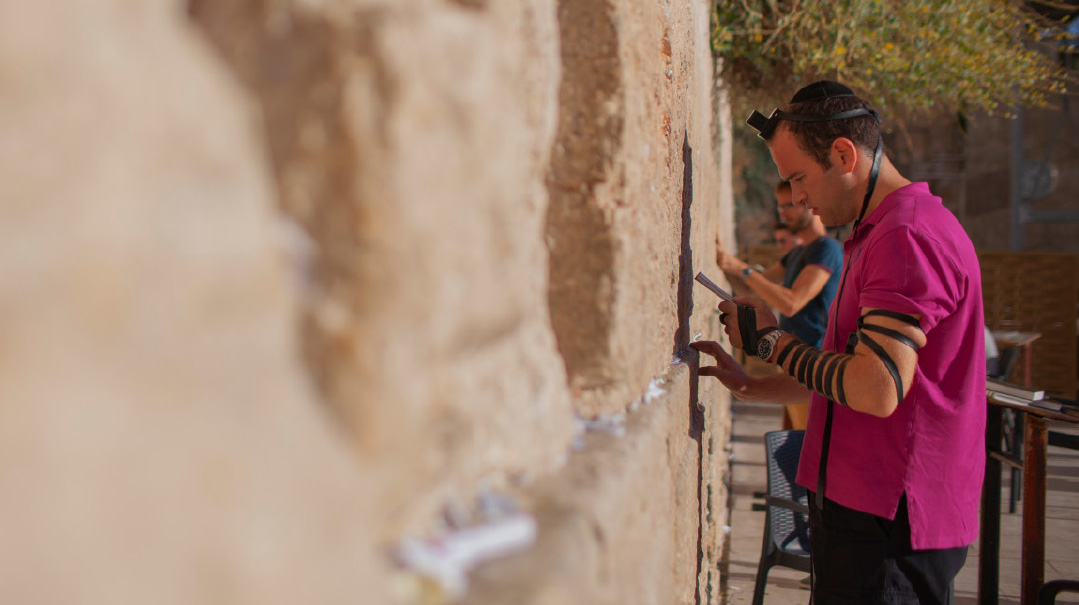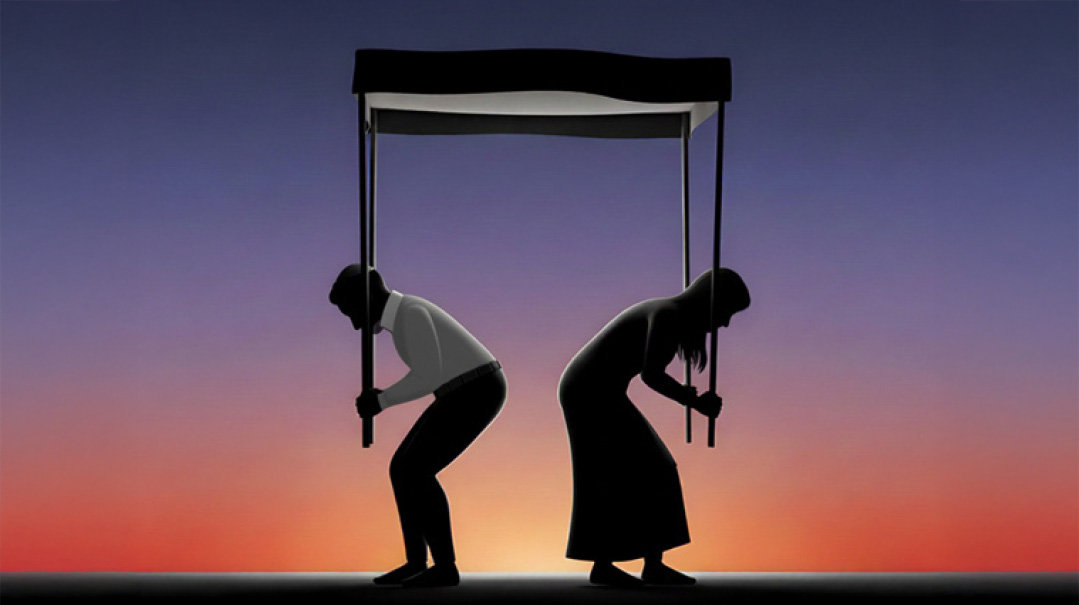Linked

The formula is simple: If you’re a Jew, you will be linked to Israel

J
ew-hatred is a fascinatingly flexible force. It has shape-shifted throughout time, finding form and expression in wildly divergent locations, religions, political systems, and cultures. One thing that hasn’t changed, though, is our persecutors’ tendency to brand us as the face of the Evil Du Jour.
We’ve been painted as primitive retrogrades refusing to bow to an enlightened religious order, as cunning revolutionaries plotting against established monarchs, as greedy capitalists sucking away hard-earned resources from the poor, as Marxists toppling the pillars of the global economy, as dirty foreigners polluting the gene pool of a glorious host country.
In the current breakdown of oppressors and victims, we’ve been branded as privileged colonizers seeking to ethnically cleanse a people from their own land. The uptick of anti-Semitic attacks since October 7 — be they in Brooklyn, London, Belgium, or Australia — seems to revolve almost entirely around this theme. Jews are assumed to be Zionists, and therefore unwelcome, unwanted bigots, targets of justified hatred.
It’s a disturbing and disillusioning development for all Jews — but especially for those who see themselves as liberated, socially conscious citizens of the modern world. There are lots of those among our secular brothers and sisters. For those who cast Israelis as Nazis and their genocide-craving neighbors as hapless victims, the definition of “Jew” most certainly does not include affinity for the Jewish country. But suddenly they’re learning that their personal politics don’t really matter.
Turns out, you can write books scolding the settlers, or op-eds excoriating the Zionist enterprise, and your book signing will be canceled anyway. You can loudly and proudly condemn Bibi as a war criminal — subtext: unlike compassionate, liberal me — and you will still find graffiti outside your office. You can studiously avoid any mention of the Middle East conflict among your peer group of fellow therapists and social workers, but they will stop referring clients to you anyway, because you’re an assumed colonizer.
The formula is simple: If you’re a Jew, you will be linked to Israel.
WE chareidi Jews also have our questions, doubts, and strong differences with the State currently ruling our homeland. We rue the desire to be a nation like all the others, which animated Israel’s founders and continues to shape so much of its character. And we mourn the intentional distancing of Hashem and His Torah that characterizes much of its legal, judicial, and cultural ethos.
In our hierarchy of religious priorities, yishuv Eretz Yisrael does not occupy the top slot. The three-pronged relationship between Yisrael, Oraysa, and the Kudsha Brich Hu is the crux of our identity, and “living in Israel” can never supersede or substitute for the primacy of obeying Hashem and observance of His Torah. In fact, a panoramic view of our history may well show that the periods of greatest fealty to Hashem’s will took place when we were not sovereigns of our own land.
This may partially explain why much of chareidi Jewry today does not live in Eretz Yisrael. Some hold it’s dangerous and forbidden to establish a Jewish sovereign state before Mashiach’s arrival, and therefore refuse to take part in or lend any overt support to this enterprise. Others have chosen to daven for the return of the Shechinah to Zion from afar, residing in locations with strong spiritual infrastructures that support limud Torah, shemiras hamitzvos, and quality chinuch.
Still, as believing Jews we agree on two things. No matter how vociferously we disapprove of the secular State, we hope and pray for the safety of the Jews who live under its sovereignty. Whatever their politics and perspective, they are Jews, they are at risk, and we care about them.
And no matter where our spiritual priorities direct us to live, we view Eretz Yisrael as our nation’s homeland. It’s the place where our relationship with Hashem and our observance of His mitzvos take on a sharper, clearer tenor. Everything a Jew does there is automatically bolded and underlined. The very air is more conducive to Torah learning, the produce is literally seeded with opportunities for mitzvos, the soil craves its own Shabbos every seven years.
Conversely, the land is so spiritually sensitive that it vomits out transgression. Its laws of nature — rain, wind, weather patterns — work in concert with our spiritual level. Hashem’s presence is more palpable there, and His interaction with His people less filtered. It’s the natural habitat of that species called “Jew.”
These are things we know and feel deep inside. We daven every day for the return to Zion. We send our children to yeshivos thousands of miles away, so they can breathe the hallowed air that imparts wisdom. We bury our dead in its soil — and if we cannot arrange for that, we bring some of that soil to our local graveyards.
But in some ways, we’ve gotten into the habit of leaving the connection there in our siddurim, in our nostalgic memories of seminary or yeshivah, or on our mental maps of holy places to visit, or as the mandatory closing for every sheva brachos speech. We weren’t often forced to grapple with how — and how much — that small strip of land shapes our identity.
Now, as the world jumps to brand us with that Zionist label many of us wouldn’t instinctively choose, it’s getting harder to avoid the cosmic link between our people and their land. Wherever we live, wherever we are situated politically, and whatever our views of the burgeoning civilization of Jews living in that small tract in the Middle East, some outside Hand seems to be drawing a big, bold “equal” sign between the word Jew and this disputed country.
As we daven for the day when our detractors fall away and our birthright is no longer contested, how can we make ourselves more deserving of the place where we can actualize our essence? Because whether we like it or not, realize it or not, approve of it or not, as Jews, we are linked to this land.
(Originally featured in Mishpacha, Issue 1042)
Oops! We could not locate your form.







